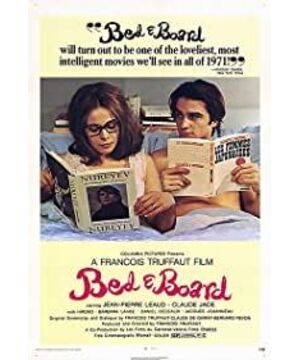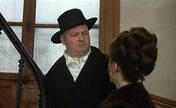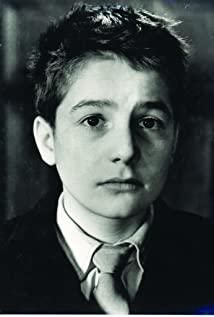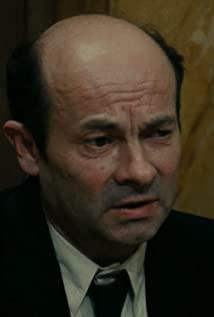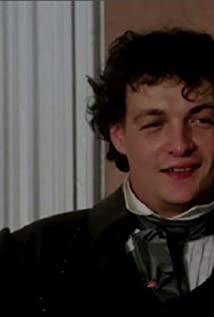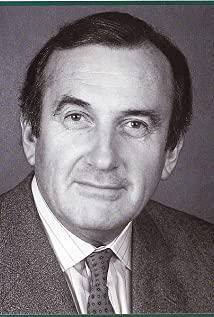Marriage is two people living together. There are not only the triviality of firewood, rice, oil and salt, but also the confusion of stumbling and stumbling. How can a young father who has just entered middle-class life and is still like a child settle down? Antoine, who is wrong, embarrassedly bumps into his father-in-law in a brothel. The father-in-law took his arm and told him mysteriously the whole secret to family happiness: You want a big, comfortable house.
Long before the New Wave movement of French cinema hit the world cinema with an unstoppable force, as early as "The Four Hundred Blows", the young Antoine escaped from the juvenile prison, which is almost the most famous long-shot ending in film history. In the end, before he faced the sea with nowhere to escape the confused look, as the most savage and mean film critic of Cahiers du Film, Truffaut, together with his revolutionary partners, used the manuscript paper to criticize the most vehemently and harshly. It is a flashy, elegant and hypocritical middle-class film carefully concocted by those well-rounded senior directors.
But the confused and turbulent Antoine will also grow up, right in the movie. In the following two decades, Truffaut continued to shoot three Antoine series films and a short film, all of which were played by Jean-Pierre Leaud as Antoine, which belonged to them. common role. So Antoine experienced a sad first love setback in the short film "Antoine and Colette", it seems that he fell in love with the girl's parents more than the girl. At the beginning of "Stolen Kiss", Antoine was expelled from the army (the end of another lost escape), and he still did not adapt to the stereotyped rules that were in the same vein as schools and juvenile detention centers, while brothels were his love for love. Simulation and compensation. He ran across the square where he had run in the dark, and once again returned to the center of life. A young man, inexperienced, swaying in the love relationship of two women, receiving the baptism of social life.
Now it's time for Truffaut to confront the middle-class movies he detests, which once rolled around in "rigidity." "Bed" continues the theme of "Stolen Kiss"'s daily life and the light comedy style of wit and ridicule, telling how Antoine, who is still confused and turbulent, enters a standard middle-class life. Truffaut created a lively and interesting prelude for the film. The shot is a pair of beautiful bare legs in motion, which seduces the audience's gaze and reverie, but the girl's voice-over is correcting how others address her. "Mrs." Tovan's married life also severed our beautiful imagination of a passing woman. This is marriage.
But regardless of life or work, the two young people have not been able to invest in a stable state of marriage. Antoine works in a florist, dyeing flowers (again, a sweet and funny taunt), and his wife makes a living teaching the violin, but is embarrassed to ask for tuition. They don't even have their own phone, and the life of the citizens downstairs is always chaotic and trivial, and the occasional mysterious accident about an eccentric man turns out to be nothing more than their vain delusions. Antoine's dyeing experiments fail, and a haphazard interview leads him to a position at a major company, ending the upheaval of his social role. When the wife is pregnant, she installs a telephone; when the wife gives birth, she opens a new house. Their lives step by step into the fence of the middle class, the next is the release of lovers, quarrels and separations. The French like to say that this is life.
Infidelity is almost a constant theme of middle-class movies. The seduction of Antoine by the barmaid downstairs is just a mirror image of daily life, trivial and plain, and the exoticism brought by an Oriental lover is worthy of adventure. . He's not the sort of love junkie who gets the chance, and doesn't need to re-prove his masculinity in menopause, or escape the pressures of family society. He was attracted by the distant and unreal hallucinations that seemed to come from another completely different world, as if disconnected from daily life, full of ritual romance and unknown beautification. Truffaut's comedic treatment makes it closer to a dream, strange and unreal, which fascinates Antoine, but fails to realize it. So we can see Antoine's "derailment" as internal, closely related to the confusion of his soul. He is always looking forward to being infatuated with more than just that person, just as he needs to love his parents when he falls in love with his wife, he must also fall in love with a lover because there is something behind her. Antoine's perplexity is to search for his absence in eternity.
When the affair is revealed, the wife dresses up as a lover to humiliate Antoine, and the wife is trying to get her identity back. However, in Antoine's eyes, the role of a wife is not so simple. She is more like his sister, daughter, and mother. Multiple identities in turn overwhelm her role as a wife. But Antoine never knew what his identity role was. Encountering his father-in-law in a brothel is undoubtedly Truffaut's mockery of middle-class life, but it is also an opportunity for Antoine to regain the role of a husband. The so-called middle-class life is nothing more than a comfortable big house, maintaining their respective identities and roles, and living peacefully in trivialities, even if sometimes this maintenance seems hypocritical.
The end of the film is abusive, with the Antoines reproducing an impatient husband and a hurriedly chasing wife. This is a scene that appeared at the beginning of the film, and the characters are a middle-aged couple next door. It also seems to be announcing that Antoine has gone through all kinds of things and finally integrated into the standard middle-class life. It's both sad and funny. (For magazine manuscripts, please do not reprint)
View more about Bed & Board reviews


